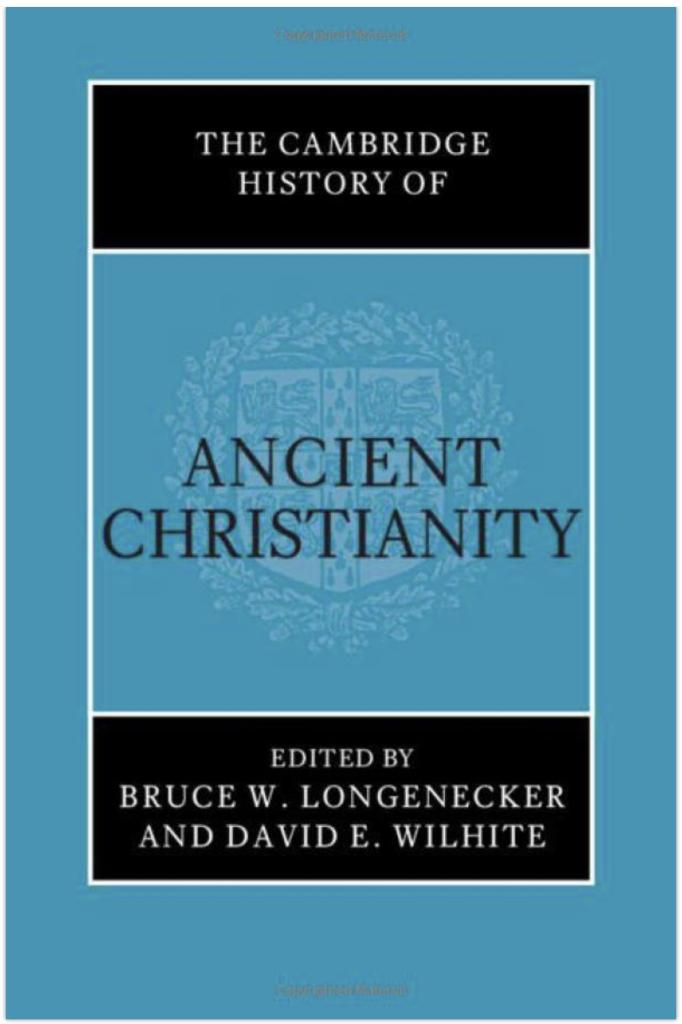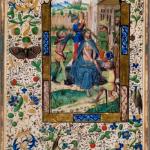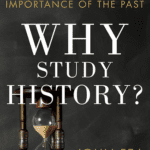I want to announce and celebrate the publication of a really valuable new book, and I say from the outset that I had nothing whatever to do with writing it! My two Baylor colleagues Bruce Longenecker and David Wilhite are the editors of the newly available Cambridge History of Ancient Christianity, which is an indispensable contribution to the study of Christian life and thought in the first three centuries.
Here is the publisher’s description:
The first three hundred years of the common era witnessed critical developments that would become foundational for Christianity itself, as well as for the societies and later history that emerged thereafter. The concept of ‘ancient Christianity,’ however, along with the content that the category represents, has raised much debate. This is, in part, because within this category lie multiple forms of devotion to Jesus Christ, multiple phenomena, and multiple permutations in the formative period of Christian history. Within those multiples lie numerous contests, as varieties of Christian identity laid claim to authority and authenticity in different ways. The Cambridge History of Ancient Christianity addresses these contested areas with both nuance and clarity by reviewing, synthesizing, and critically engaging recent scholarly developments. The 27 thematic chapters, specially commissioned for this volume from an international team of scholars, also offer constructive ways forward for future research.
The list of contributors is really strong, a true array of all-stars. I don’t want to single out individuals, so let me just offer the very wide-ranging Table of Contents.
I.Contested Contexts:
The History of Ancient Christian History David E. Wilhite
The Present and Future of Ancient Christian History David E. Wilhite
Depicting the Other in Early Christian Polemic: Christian Rhetoric and Identity in the Early Heresiologists Richard Flower
Why Did People Become Christians in the Pre-Constantinian World? Reframing the Question Éric Rebillard
II.Contested Figures:
Remembering Jesus in Earliest Christianity: The What and How of Socially-framed Memory Ben Sutton and Anthony Le Donne
Remembering Jesus in the Second and Third Centuries CE Andrew Gregory
Paul and His Diverse Champions Benjamin L. White
Peter and His Diverse Champions Tobias Nicklas
III.Contested Heritage:
Jews and Christians in Pagan Antiquity: From the First through the Third Centuries Christine Shepardson and Paula Fredriksen
The Marcionite Options Judith M. Lieu
The Gnosticising Options: Routes Back to God Pheme Perkins
Early Christian Involvement in Classical Education, Literature, and Philosophy Josef Lössl
Scriptures and Interpretations in Early Christian History Peter W. Martens
IV.Contested Cultures:
Early Christians and Their Socio-Economic Contexts James R. Harrison
Early Christians and Roman Imperial Ideology Adam Winn
Martyrdom between Fiction and Memory David L. Eastman
The Emergence(s) of Christian Material Culture(s) Eric C. Smith
Manuscripts and the Making of the New Testament Tommy Wasserman
V.Contested Beliefs:
Contesting Creator and Creation Paul M. Blowers
The Trinity in the Making Jennifer Strawbridge
Resurrection, Transformation, and Deification M. David Litwa
The Eucharist in the First Three Centuries Daniel Cardó
Office, and Appointment to Office, in Early Christian Circles Alistair C. Stewart
VI.Contested Bodies:
Masculinity, Femininity, and Sexuality: The Construct of Self-Control in Early Christianity Susan E. Hylen
Christian Slavery in Theology and Practice: Its Relation to God, Sin, and Justice Ilaria L.E. Ramelli
Wealth, Almsgiving, and Poverty Helen Rhee
Power, Authority, The Living and The Dead Robin M. Jensen
Do note the focus of each section on what is “contested,” and how those debates and contests play out in this era. Obvious enough as an approach, perhaps, but an excellent way of providing thorough coverage, and never losing sight of the constant process of dialogue and controversy. Throughout, the book highlights the polyphonic and polycentric aspects of that early Christianity. These are all themes very close to my heart, as all feature centrally in a project of my own that I have been developing over the past couple of years.
I am very much looking forward to the celebratory event for the new History that we will be holding at Baylor’s Institute for Studies of Religion early in 2024. Watch this space for details!
On a closely related subject, another Baylor colleague of mine, Jeff Fish, is the co-author of a major study that reports the finding of sayings of Jesus preserved in the (Egyptian) Oxyrhynchus Papyri. Isolated sayings of Jesus, logia, have repeatedly shown up through the centuries, but for multiple reasons, these latest examples carry special weight in showing what Christians believed at a very early stage – probably the second century.
Candida Moss has an informative article on this discovery, under the evocative title Scholars Publish New Papyrus With Early Sayings of Jesus. I quote:
In conjunction with distinguished papyrologist and paleographer Ben Henry, the editors—Jeffrey Fish, Daniel Wallace, and Michael Holmes—date the fragment to the second century CE. This is important because, as Dr. Fish told me, “Only a few gospel papyri can be securely dated to the second or beginning of the third century.” This is the earliest period from which we have Christian manuscripts. “What is so significant about this papyrus,” continued Fish, “is that it contains sayings of Jesus which correspond partly to canonical gospels (Matthew and Luke) and partly to sayings we know only from the Gospel of Thomas. It is as early or earlier than any of our papyri of the Gospel of Thomas [our earliest non-canonical Gospel],” including other fragments of the Gospel of Thomas found at Oxyrhynchus….
The contents parallel passages of both canonical and non-canonical Gospels around this theme: specifically, an instruction not to worry about your life, food, or clothing (Matthew 6:25; Luke 12:22; Gospel of Thomas 27; 36); to emulate birds and their lack of cares (portions of Matt. 6:26–33; Luke 12:24–29); and a saying in the Gospel of Thomas that cautions people that even a rich man who amassed wealth still met death (saying 63). You cannot plan your way out of mortality. All life, like grass “is dried up and thrown in the oven” in the end.
The finds show how Christians remembered and quoted such sayings, which might or might not have been associated with particular gospels or gospel traditions as we might expect in later eras.
Do read the whole article.
Even after all those centuries of research, finds like this can still surface.














